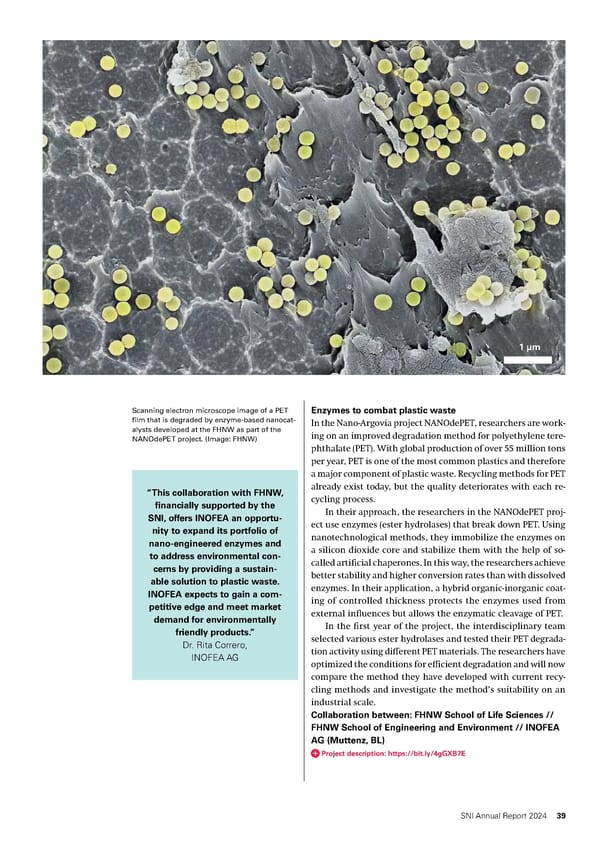1 µm Scanning electron microscope image of a PET Enzymes to combat plastic waste film that is degraded by enzyme-based nanocat- In the Nano-Argovia project NANOdePET, researchers are work- alysts developed at the FHNW as part of the ing on an improved degradation method for polyethylene tere- NANOdePET project. (Image: FHNW) phthalate (PET). With global production of over 55 million tons per year, PET is one of the most common plastics and therefore a major component of plastic waste. Recycling methods for PET “This collaboration with FHNW, already exist today, but the quality deteriorates with each re- financially supported by the cycling process. SNI, offers INOFEA an opportu- In their approach, the researchers in the NANOdePET proj- nity to expand its portfolio of ect use enzymes (ester hydrolases) that break down PET. Using nano-engineered enzymes and nanotechnological methods, they immobilize the enzymes on to address environmental con- a silicon dioxide core and stabilize them with the help of so- cerns by providing a sustain- called artificial chaperones. In this way, the researchers achieve able solution to plastic waste. better stability and higher conversion rates than with dissolved INOFEA expects to gain a com- enzymes. In their application, a hybrid organic-inorganic coat- petitive edge and meet market ing of controlled thickness protects the enzymes used from demand for environmentally external influences but allows the enzymatic cleavage of PET. friendly products.” In the first year of the project, the interdisciplinary team Dr. Rita Correro, selected various ester hydrolases and tested their PET degrada- INOFEA AG tion activity using different PET materials. The researchers have optimized the conditions for efÏcient degradation and will now compare the method they have developed with current recy- cling methods and investigate the method’s suitability on an industrial scale. Collaboration between: FHNW School of Life Sciences // FHNW School of Engineering and Environment // INOFEA AG (Muttenz, BL) Project description: https://bit.ly/4gGXB7E SNI Annual Report 2024 39
 Annual Report 2024 - Swiss Nanoscience Institute Page 38 Page 40
Annual Report 2024 - Swiss Nanoscience Institute Page 38 Page 40